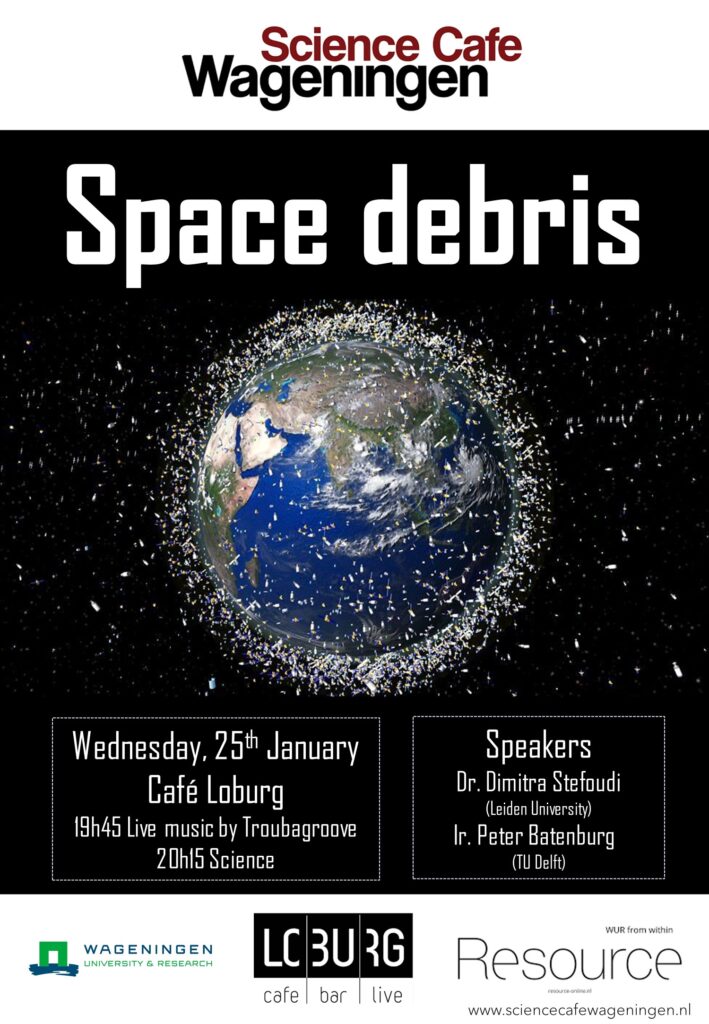Wednesday January 25th
19:45 live music
20:15 speakers
Café Loburg
During the more than six decades that humankind has been active in outer space, thousands of satellites have been launched into the Earth’s orbits. Thanks to the growing number of space-faring countries and of private actors that participate to space ventures, the number of launched objects continues to increase. To that contributes the rapid technological developments that allow for affordable launches and large constellations of satellites. Eventually, some of the satellites in orbit reach the end of their life, encounter malfunctions or collide with other objects, which render them inoperable. Space debris, as these non-functional objects are known, pose a great risk to the environment of outer space, creating the risk of further collisions and orbital congestion. Therefore, it is essential to mitigate space debris in future missions and remediate existing debris in space.
The first part of this talk will address the legal framework that governs space activities and the challenges that are raised by space debris, in terms of preserving the space environment and maintaining the long-term sustainability of outer space.
The second part will address the technical issues with space debris. A few examples of (the risk of) orbital debris impact will be discussed, followed by the technical challenges and dilemma’s that come with keeping space clean.
Dimitra Stefoudi is part of the International Institute of Air & Space Law of Leiden University. She focuses her research and teaching on space applications, cybersecurity and privacy in space activities, space resources governance, and is writing her PhD on the “Legal and Policy Aspects of Space Big Data”, with the support of the Netherlands Space Office and the European Space Agency. She is also part of the faculty of the International Space University.
Dimitra participates often to international conferences and speaks frequently about space law in public events. She is member of the International Institute of Space Law, the European Center for Space Law, the Netherlands Space Society, the Greek New Space Society, and Advisory Board Member of the Space Court Foundation.
Peter Batenburg is the Space for Science & Society Programme manager for the Leiden-Delft-Erasmus Universities and owner of HQspace. After finishing his study in Space Engineering at the TU Delft Aerospace Engineering faculty Peter has worked for the International Space Station programme at Airbus and in several other space projects as project manager and/or Space System Engineer.
Peter is an active member in the national and international space community in several IAF committees and Dutch Space societies and organisations. He regularly presents to various audiences on the history of and developments in the space sector.

